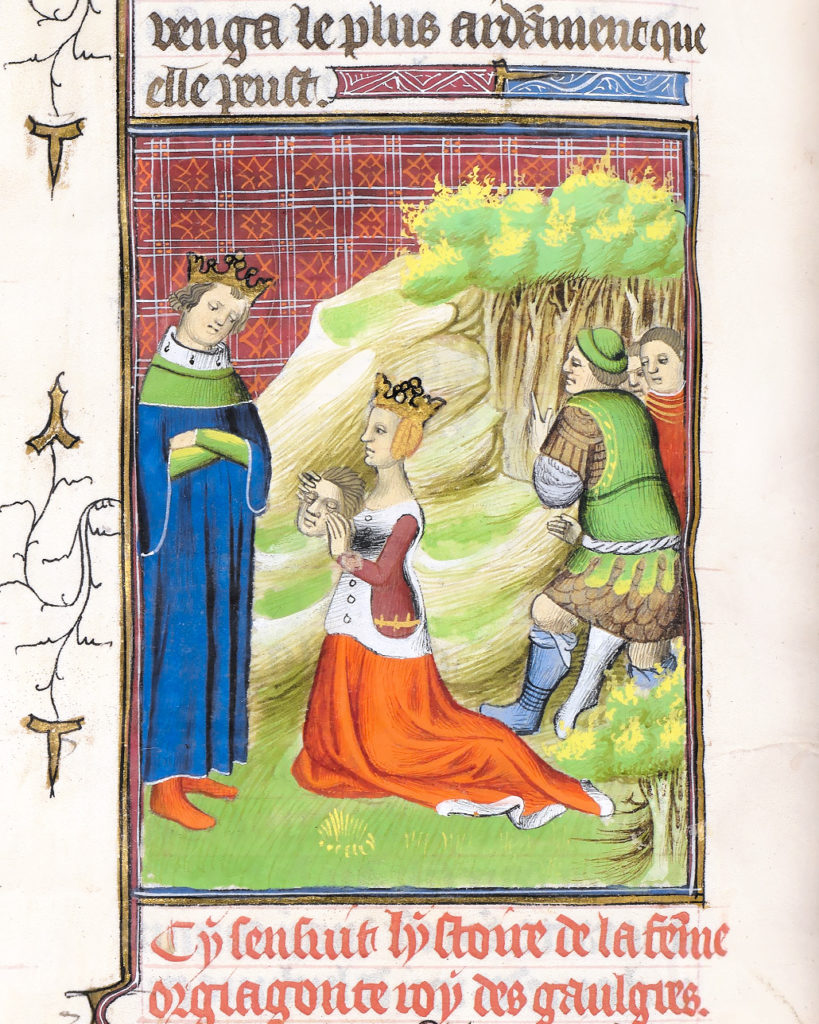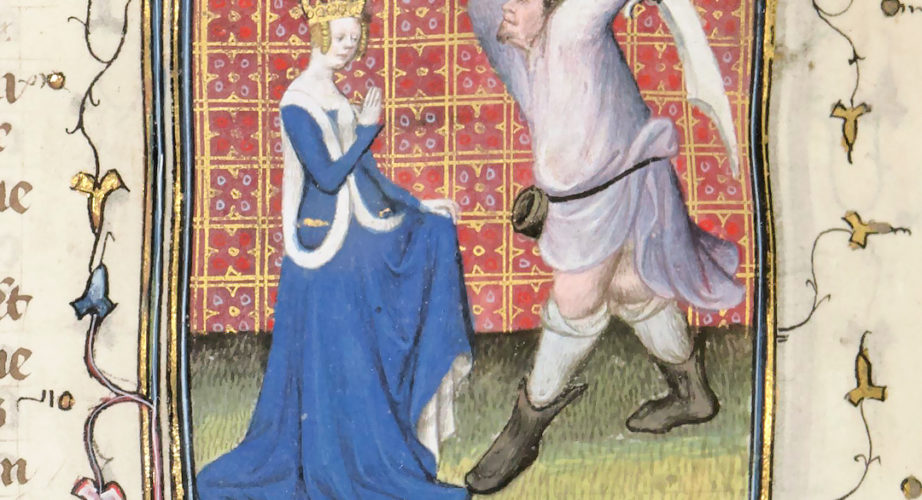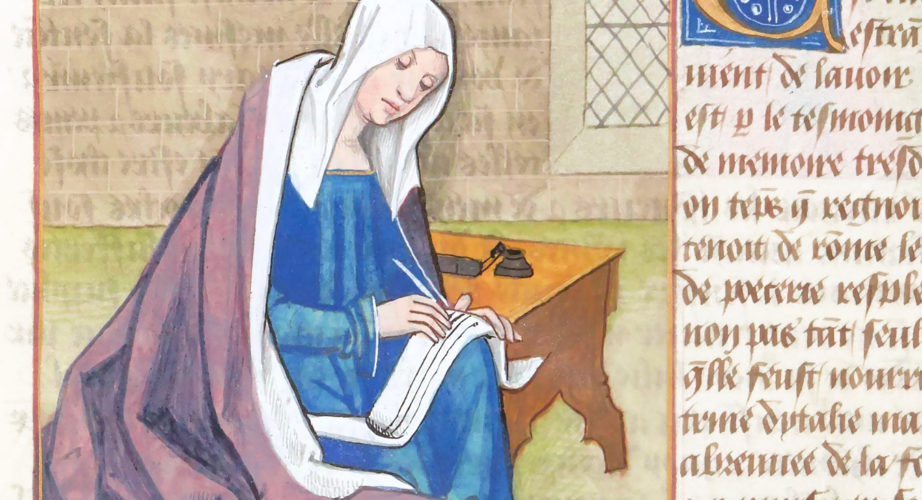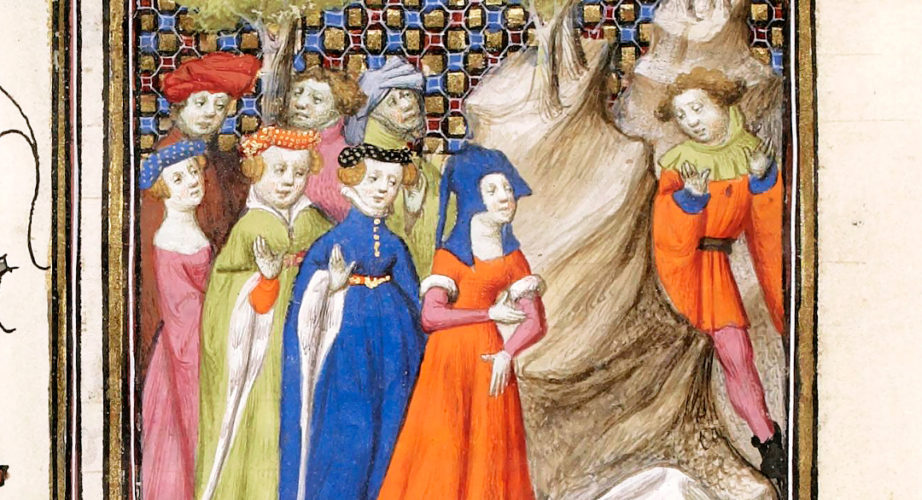Chiomara

If there is something we have understood about Boccaccio and his view of women by reading his De Mulieribus Claris, it is his love-hate towards strong, vindictive women! Our weekly story is that of Chiomara, queen of a Galatian tribe and wife of Orgiagon.
That of Orgiagon was one of the three Galatian tribes that fought the 189 BC Galatian War with Rome. The Roman general Gnaeus Manlius Vulso, after a particularly victorious campaign, had taken many prisoners (including the queen) and put them under the supervision of a conniving centurion. Upon noticing Chiomara and her incredible beauty, the man was overtaken by lust and forced himself on her. The woman thus stopped wishing for freedom and started hoping for revenge instead. Her perfect opportunity came when the centurion, in order to placate his conscience, decided to hand back Chiomara to her tribe in exchange for a ransom.
On the day of the ransom, while the centurion was counting the gold, Chiomara spoke to her countrymen in their tongue, unknown by the Romans, and ordered them to cut off his head. The men immediately obliged and Chiomara, picking up the severed head and wrapping it in her dress, presented it to her husband as a symbol of her honesty and of revenge towards the offense made to them both.
In his account of the story, Boccaccio openly illustrates his admiration towards Chiomara, her cold-blooded revenge, and her sense of honor.
"Chiomara", illumination from the manuscript “Des cleres et nobles femmes”, ms. Royal 20 C V, f. 113v, 1st quarter of the 15th century, British Library, London.
Historically and mythologically speaking, being in a powerful position (and perhaps also a…
The time has finally come for the very first Women’s Wednesday of 2021!…
Welcome back to another Women’s Wednesday! Our weekly Mulier Clara, much like Sappho…


